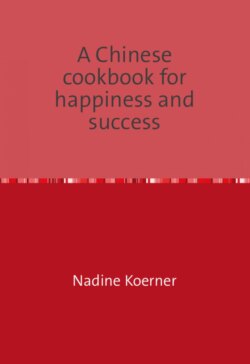Читать книгу A Chinese cookbook for happiness and success - Nadine Koerner - Страница 8
На сайте Литреса книга снята с продажи.
Measuring success
ОглавлениеWhile many indices exist to measure happiness, there is no ‘official’ measure for success of people in different countries worldwide. This might be due to the fact, that there is no single, globally accepted definition of success and the perception of success is diverse: professional standing, educational accomplishments, athletic achievement, celebrity status, humanitarian impact, political clout, financial freedom, personal fulfillment, etc.
Few countries have a ‘national notion’ of success, one is Singapore. In Singapore, success is measured by the 5 Cs, a Singaporean acronym for the symbols of material success: car, cash, credit card, and condominium and club membership. In Hong Kong property is the measure of success and makes or breaks a person's fortune – and often happiness.
But there are many examples where it is very questionable if success can be measured in such ways:
Steve Jobs: He dropped out of college after one semester and returned soda bottles for money to buy food. Later on he got fired from a company he helped to found, but, by Forbes estimates, he was worth 8.3 billion USD at the time of his death.
Thomas Edison: He spent a total of three months in public school before being found to be ‘unsuitable for public school’. Thomas Edison was home schooled, never attended college, bounced from one job to another, often being fired.However at the time of his death in 1931 held more than 1,093 patents and had founded four companies including General Electric, which is still in existence today.
Mother Teresa: She never went to medical school, never married and never had children. At some points in her life she begged for food and yet she won a Nobel Peace Prize and established 610 Missions in 123 countries before her death in 1997.
Surprisingly or not, according to the June 2013 Monitor on Psychology, ‘Subjective well-being' measures gain international weight as measures of success![33]
